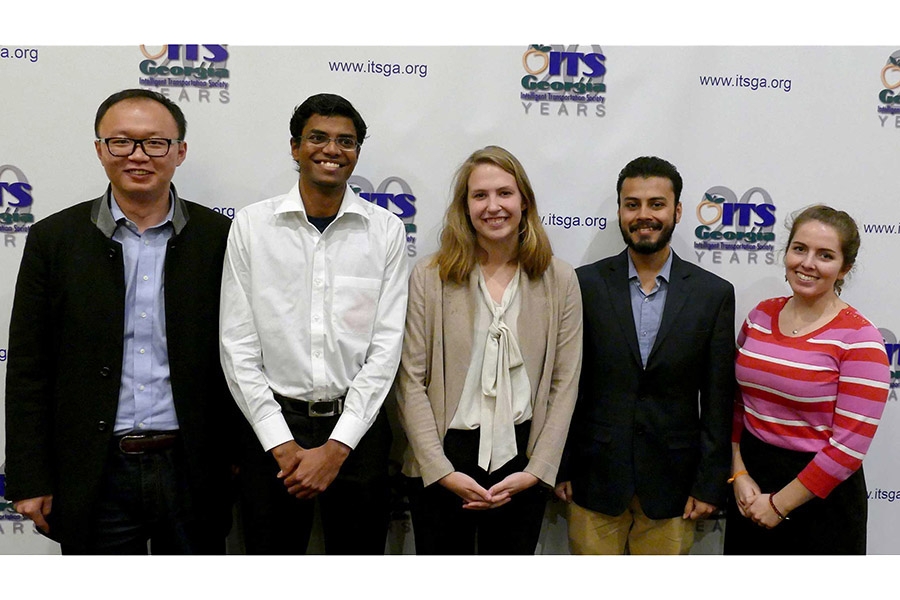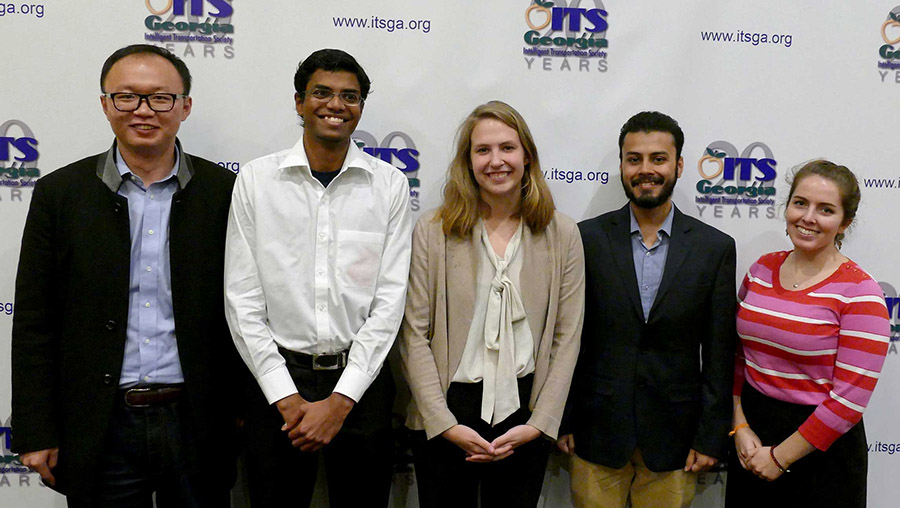
The Intelligent Transportation Society of Georgia has awarded scholarships to five School of Civil and Environmental Engineering students for their ideas about improving mobility in urban regions.
The Wayne Shackelford Scholarships went to graduate students Anirban Chatterjee, Lauren Gardner, Haobing Liu and Cibi Pranav and senior Zoe Turner-Yovanovitch.
“This scholarship and the ITS Georgia community helps me gain the knowledge and exposure I need to advance my research on automated road infrastructure condition assessment,” said Chatterjee, who’s pursuing a Ph.D. in computational science and engineering and working to make road infrastructure surveys safer and more efficient for engineers.
Each of the winners had to submit an essay suggesting smart technologies for urban areas that would improve regional mobility. They suggested everything from real-time information on parking availability so drivers don’t clog roads looking for a space to smart reflectors to make pedestrians more visible as they approach dangerous crossings.
Several essays espoused the benefits of improved traffic signal synchronization and connectivity as well as broad use of sensors to help traffic managers monitor and ease congestion. There were even ideas to use auditory sensors to detect accidents and dispatch emergency responders more quickly or to create smart lighting that illuminates less-traveled areas when pedestrians are present but saves energy when the areas are empty.

